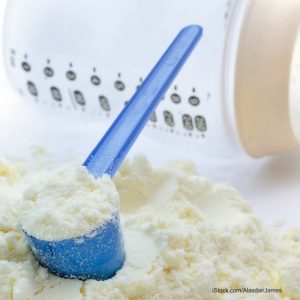Health Canada is warning consumers about the risks associated with homemade baby formula. The homemade formulas can “cause severe malnutrition and potentially fatal illness in infants,” health authorities say.
 Recipes for homemade formula, available on the Internet, are billed as healthy alternatives to appeal to processed foods. But there is a reason why commercial infant formula is one of the most tightly regulated products on the market, health officials say. It’s not easy to replicate human breast milk. Infants have have specific nutritional needs that are not the same as those of adults or children. Every ounce they take in needs to be balanced with the the proper amount of vitamins, minerals, fats and protein.
Recipes for homemade formula, available on the Internet, are billed as healthy alternatives to appeal to processed foods. But there is a reason why commercial infant formula is one of the most tightly regulated products on the market, health officials say. It’s not easy to replicate human breast milk. Infants have have specific nutritional needs that are not the same as those of adults or children. Every ounce they take in needs to be balanced with the the proper amount of vitamins, minerals, fats and protein.
Whereas homemade formulas carry the risk of nutritional deficiencies, toxicity from too much of an added ingredient, and contamination from pathogens such as E.coli, Campylobacter and Salmonella; commercial formulas undergo a full safety and nutritional quality assessment by Health Canada before they can be sold. Makers of commercial formula must provide scientific evidence that their products can support healthy growth in infants and pose no risk of toxicity or microbial contamination.
Health Canada, is joined by the he Canadian Pediatric Society, and the Dietitians of Canada in advising against the use of homemade infant formulas. Health Canada’s warning states that the agency: “strongly supports breastfeeding and promotes it as the normal and most beneficial method of feeding infants for normal growth, health and development. For babies that are not breastfed or receiving breastmilk, Health Canada recommends only commercial infant formula as a substitute.”




